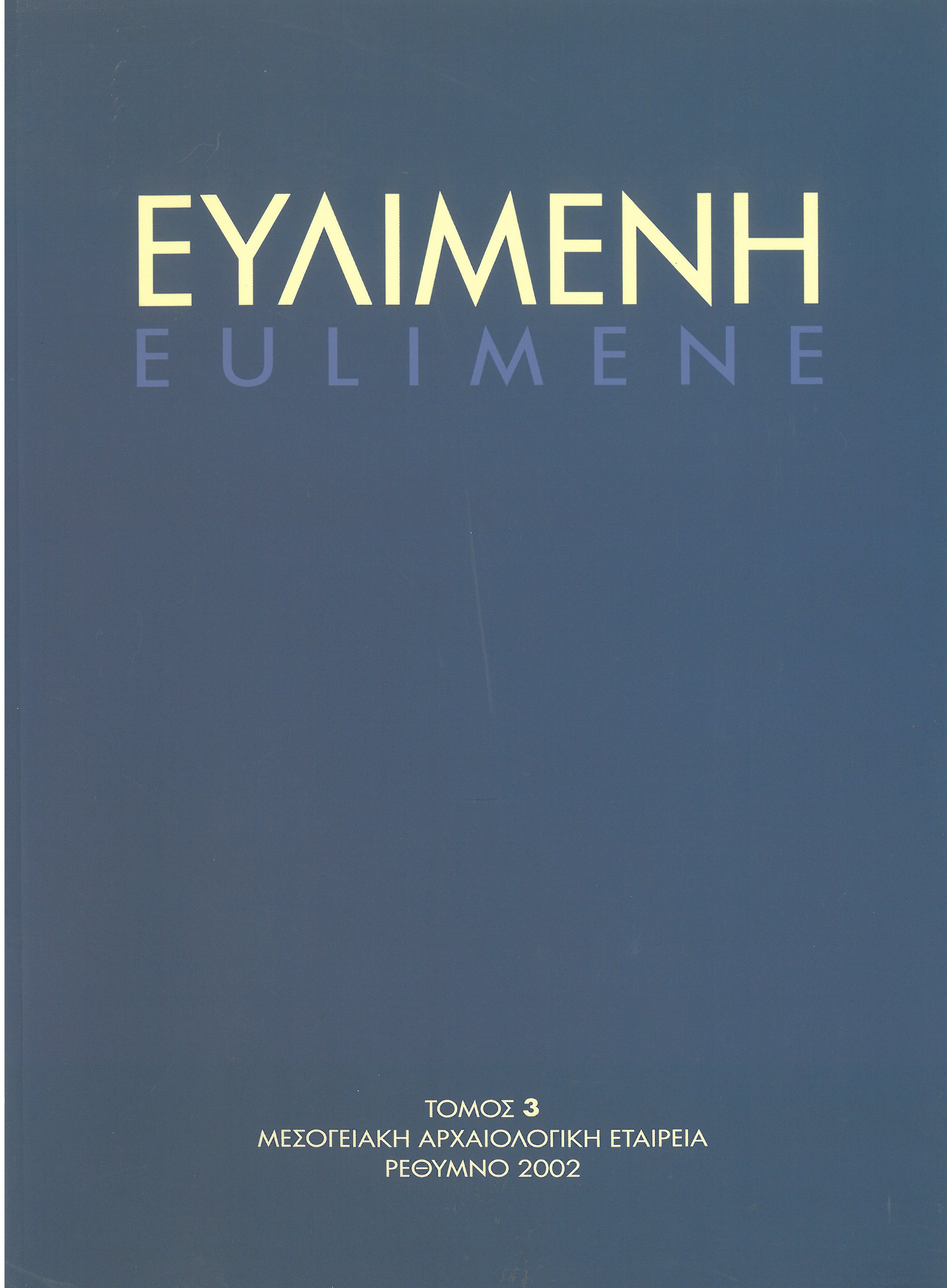Συμβολές στην ιστορία της ιατρικής στην αρχαία Μακεδονία

Abstract
Contributions to the history of medicine in ancient Macedonia. The publication of two previously unpublished funerary monuments to physicians, one from Hellenistic Pella, and one from Early Christian Pella, provides an occasion for a study of the history of medicine in ancient Macedonia, the worship of the gods of medicine in the city of Pella and the health problems of its citizens. The first monument is an inscribed marble base from the 3rd quarter of the 4th century B.C., which supported a marble stele commemorating a doctor from Thasos, who worked in Pella as public physician and who died abroad (Fig. 1–2). The second monument is a marble funerary stone to a physician named Alexander, from the 1st half of the 5th century A.D. (Fig. 3). By the 5th century B.C. the kings of Macedonia were already displaying a considerable interest in medicine, accentuating their care for the army and for their subjects. The development of medical science was chiefly due to the presence at the royal court, as visitors or as permanent residents, of such illustrious physicians as Hippocrates and his son Thessalus, Nicomachus the father of Aristotle, Critobulus of Cos, Philippus of Acarnan, Menecrates of Syracuse, Hippocrates, the son of Draco, and Polydorus of Teios. Historical sources tell us that Critobulus, Cridodemus and Draco of Cos served in the medical corps in the army of Alexander the Great’s, as did Philippus of Acarnania, who was Alexander personal physician, and Alexippus, Pausanias and Glaucus (or Glaucias), respectively the personal physicians of Peucestas, Craterus and Hephaestion. Alexander himself had been initiated into the art of medicine by his tutor Aristotle, and had sufficient medical knowledge to attend to the medical and pharmaceutical care of his friends and his men. From archaeological evidence we know of another physician, who died at Pydna in early Hellenistic period and who, judging from his instruments, must have been a surgeon (Fig. 4–6). In contrast to the Hellenistic kingdoms of the East, however, nothing is known of any other physicians from the time of Cassander to the late Hellenistic period.
In the imperial age the medical profession had made great progress, with the invention of new instruments and through specialisation in the diseases of the various organs of the body. The position of public physician, or chief medical officer, that had been instituted in the Roman world, is also attested in Macedonia in the person of Aurelius Isidorus, scion of a prominent Thessalonican family. The «medici» in the Macedonian colonies also appear to have had some connections in Macedonia were self–employed professional physicians (Sextus Iulius Chariton of Amphipolis, Titus Servius and his wife Servia of Thessalonica, Pubicius Lalus and Publicius Hermias of Beroea, Aelius Nicolaus of Edessa, Aptus of Dion, Theodorus of Kato Kleines Florinas and C. Iulius Nicetas of Lyke, as well as Athryilatus of Thasos and Theodorus of Macedonia, known from literary sources). In addition to Alexander of Pella, Early Christian inscriptions also mention the physicians Paul of Philippi, Damian of Thessalonica and Anthemius of Edessa. In Macedonia, as elsewhere, medicine progressed in tandem with the cult of Asclepius, which is attested in many cities (Beroea, Mieza, Dion, Thessalonica, Moryllus, Kalindoia, Antigoneia, Cassandreia, Amphipolis, Philippi, etc.). The priests of Asclepius were illustrious men from the cities of Macedonia, and his priesthood was an office of great social prestige and of particular importance in the organisation of the Macedonian kingdom. Archaeological excavations in the south–west sector of Pella have brought to light a large sanctuary of Asclepius, whose temple and altar were also used for the worship of Apollo, Heracles and the local healing divinity Darro, to whom the prayers for the sick were addressed. The worship of these gods, which continued in Roman Pella too, was an essential feature in the lives of the inhabitants of the city, whose health was affected by problems associated with bad water and malaria.
Article Details
- Issue
- EULIMENE 3 (2002)
- Section
- Articles
- Categories
The copyright for articles in this journal is retained by the author(s), with first publication rights granted to the journal. Authors who submit articles to this journal confirm that third-party intellectual property rights are not violated in any way. By virtue of their appearance in this open access journal, articles can be used freely, with proper attribution, for educational and other non-commercial purposes. The Mediterranean Archaeological Society retains the right to publish papers that appear in EULIMENE in any form, including electronic, the journal may assume in the future. It also retains the right to deposit articles published in EULIMENE in its repository.





